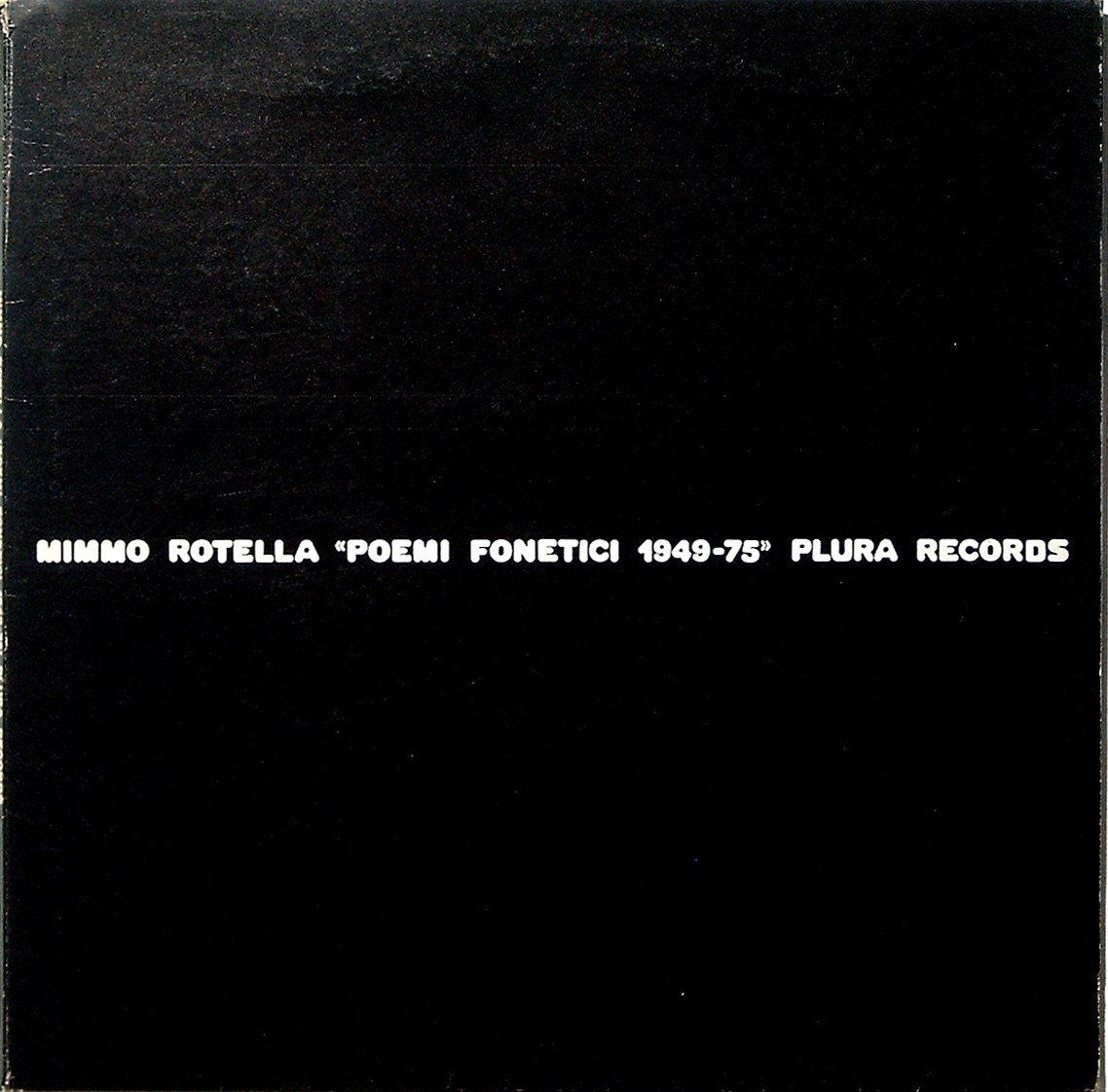
Title of the album: Poemi fonetici 1949-75
Title: Poema fonetico numero undici (Track 11)
Publisher: Plura Edizioni, Milano
Date: 1949-1975, [1975]
Medium: record 30 cm
Edition: 1000 n. & s.
The sound poems by Mimmo Rotella were written between 1949 and 1975. A collection of these phonetic poems appeared in 1975 on the LP Poemi Fonetici 1949-75.
The sound poem Poema fonetico numero undici consists of various sounds and the sound of steps. Rotella's sound poems are generally based on a series of phonemes, which he invented himself, and onomatopoeic evocative sounds. In this regard, they represent a collection of words (including invented ones), whistles, sounds, numbers and word-forming onomatopoeias. They are reminiscent of the sound poems of Kurt Schwitters, especially the Ursonate, and show great references to the poems of the Dadaists and Futurists.
For Rotella, sound poetry represented an alternative expressive procedure that, comparable to his decollage, combined very different elements. Readings of his poems were in great demand, so that Rotella performed to great applause not only in Italy.
Mimmo Rotella called his sound poems "epistaltici". As early as 1949, he wrote the manifesto of epistaltic poetry, the Manifesto dell'Epistaltismo. The manifesto was published in 1955 by Leonardo Sinisgalli in Civilization of Machines. It states that the term epistaltico is a term invented for purely formal reasons. Epistaltic composition corresponds to collage-like art. Epistaltic language means inventing all words and stripping them of their useful value. The word is above all sound: the dividing line between music and poetry must be eliminated. In musicality, and therefore in sound, lies the true essence of the word. In this reduction to the minimum, the word finds its autonomy and its evocative character. The human voice is an inexhaustible source in the sense of natural musical instruments. According to Mimmo Rotella, episthetic language is the only valid one in the poetic core of our time.
ATJ